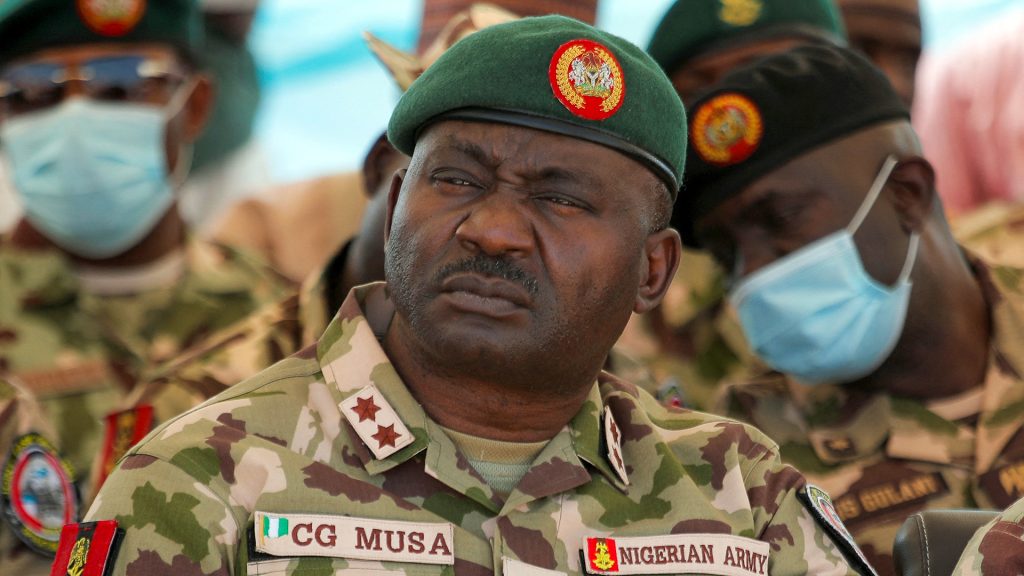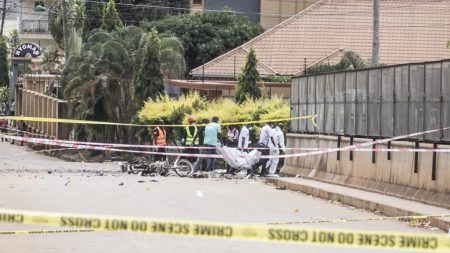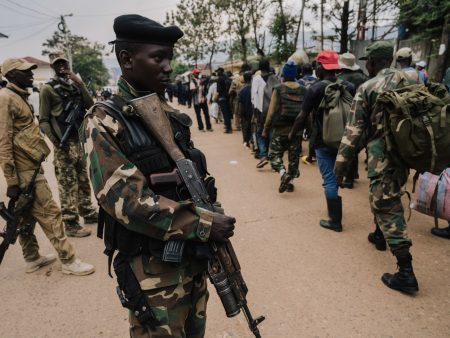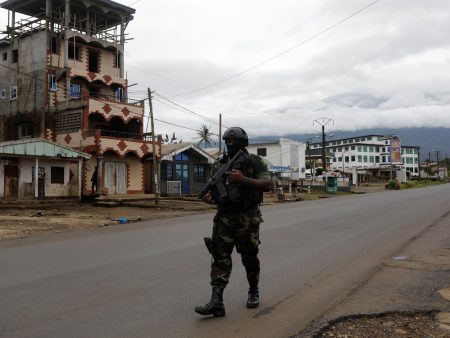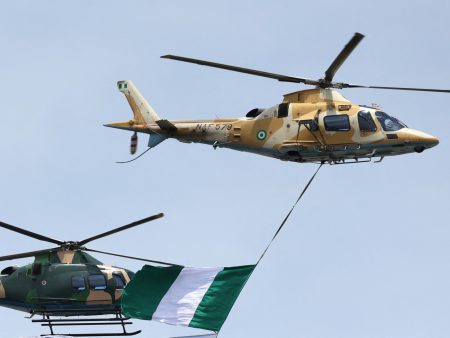Nigeria’s protracted conflict with Boko Haram and its ISIL-affiliated factions has cast a long shadow over the nation for over 15 years, leaving a devastating trail of human suffering and loss. Millions have been displaced, thousands have lost their lives, and the fabric of society has been deeply torn. While the government has declared a “technical defeat” of the insurgents, the reality on the ground paints a different picture. Persistent attacks continue to plague communities, raising serious concerns about the effectiveness of the current counter-insurgency strategy and the lack of accountability for both the military and the insurgent groups. General Christopher Musa, Nigeria’s Chief of Defence Staff, faces the monumental task of addressing these complex challenges and restoring security to the troubled region. He must navigate a landscape fraught with not only the persistent insurgency but also allegations of human rights abuses and corruption within the military, impacting troop morale and operational capacity. The situation is further exacerbated by regional instability, including recent coups in neighboring countries and the growing influence of external actors like Russia.
The insurgency itself presents a formidable challenge. Boko Haram, known for its brutal tactics and extremist ideology, has fragmented and evolved over the years. Dealing with these disparate factions requires a nuanced approach that goes beyond traditional military operations. Understanding the motivations and dynamics within these groups is crucial to developing effective strategies for counter-terrorism and deradicalization. The continued attacks underscore the need for a comprehensive reassessment of the military’s strategy, including intelligence gathering, operational tactics, and community engagement. Addressing the root causes of the conflict, such as poverty, inequality, and lack of opportunity, is also essential for long-term peace and stability. The narrative of a “technical defeat” must be reconciled with the persistent violence, demanding a transparent assessment of the true situation and a renewed commitment to achieving a lasting peace.
Beyond the battlefield, General Musa must also confront the serious allegations of human rights abuses and corruption within the military. These accusations, often coming from international human rights organizations and local communities, erode public trust and undermine the legitimacy of the counter-insurgency efforts. Addressing these claims transparently and holding those responsible accountable is essential, not only for justice and reconciliation but also for rebuilding the military’s credibility and fostering cooperation with civilian populations. Corruption within the military diverts resources and weakens operational effectiveness, hindering the fight against Boko Haram. A thorough investigation and prosecution of corruption cases, coupled with institutional reforms to enhance transparency and accountability, are crucial steps toward restoring integrity and strengthening the military’s ability to carry out its mission effectively.
Furthermore, the internal challenges within the military, such as low morale and operational capacity gaps, require immediate attention. The ongoing conflict’s duration, coupled with the accusations of human rights abuses and corruption, has taken a toll on the morale and effectiveness of troops. Addressing the welfare of soldiers, providing adequate training and equipment, and fostering a culture of professionalism and ethical conduct are vital for improving morale and enhancing operational capability. Investing in the well-being of the armed forces is an investment in national security, ensuring that they are equipped and motivated to protect the country and its citizens. This includes providing adequate psychological support and addressing the trauma experienced by soldiers on the front lines.
The regional context further complicates the situation. Political instability, marked by coups and unrest in neighboring countries, spills over into Nigeria, exacerbating the security challenges. Porous borders allow for the movement of fighters, weapons, and resources, facilitating the operations of Boko Haram and other extremist groups. Regional cooperation and intelligence sharing are essential for addressing these cross-border challenges. Working with neighboring countries to stabilize the region and counter the spread of extremism is vital for achieving lasting security in Nigeria. Furthermore, the growing influence of external actors like Russia, through private military companies like the Wagner Group, adds another layer of complexity. Understanding the motivations and implications of such external involvement is crucial for developing effective counter-strategies and safeguarding national sovereignty.
In conclusion, General Christopher Musa faces a multifaceted and complex challenge in addressing the Boko Haram insurgency and securing Nigeria’s future. The persistent violence, coupled with internal challenges within the military, requires a holistic approach that goes beyond military operations alone. Addressing the root causes of the conflict, tackling corruption, improving troop morale, and fostering regional cooperation are essential components of a comprehensive strategy. The general’s leadership in navigating these intricate issues will be crucial for achieving lasting peace and security in Nigeria and the wider region. The international community also has a role to play in supporting Nigeria’s efforts, providing technical assistance, humanitarian aid, and diplomatic pressure to address the root causes of the conflict and promote regional stability. The path to peace and security will be long and arduous, but with a renewed commitment to addressing these challenges comprehensively, Nigeria can overcome this protracted conflict and build a more secure and prosperous future for its people.



